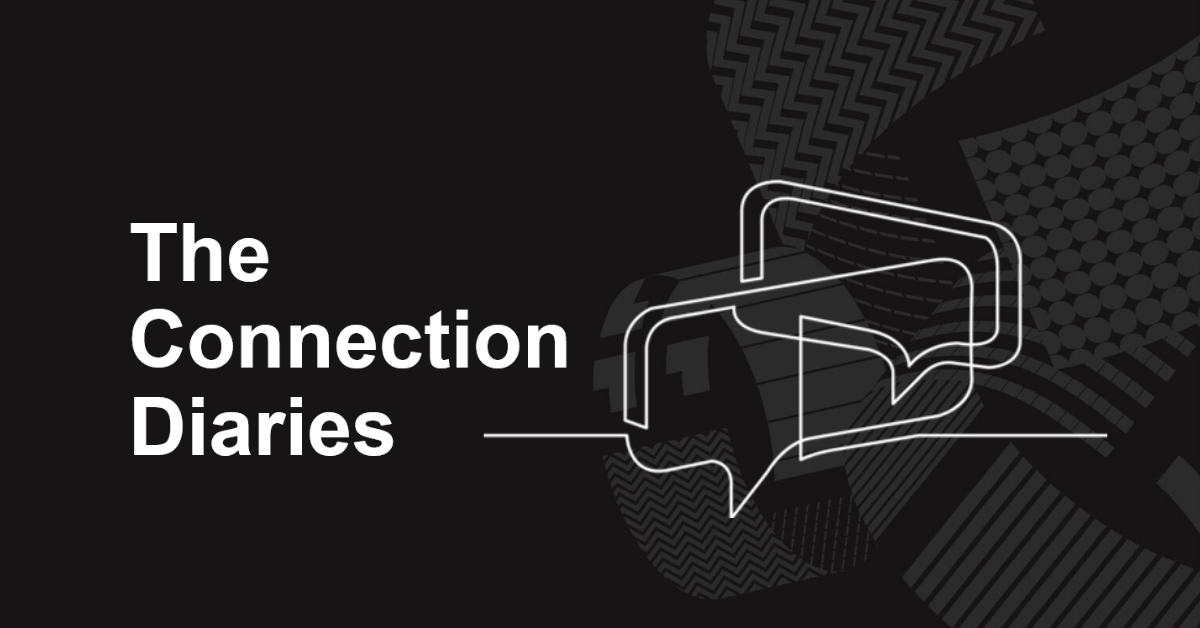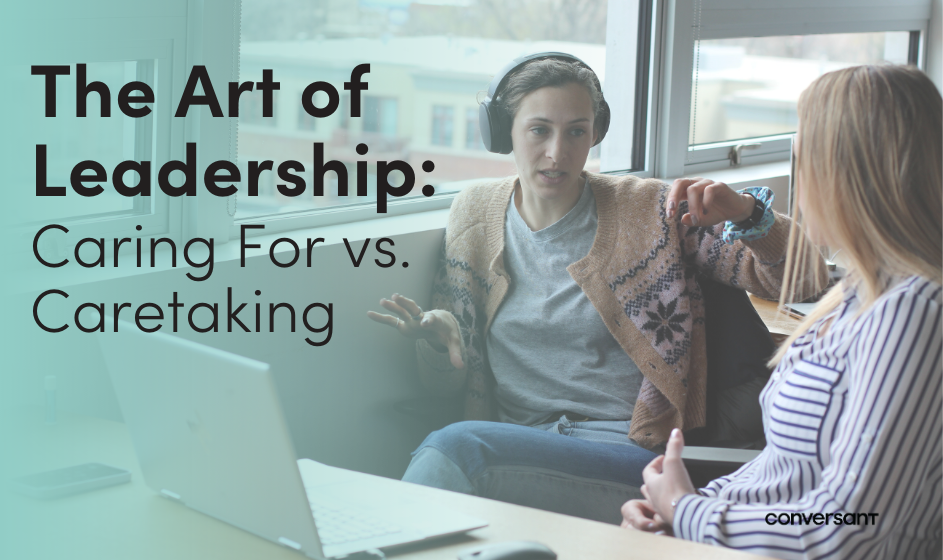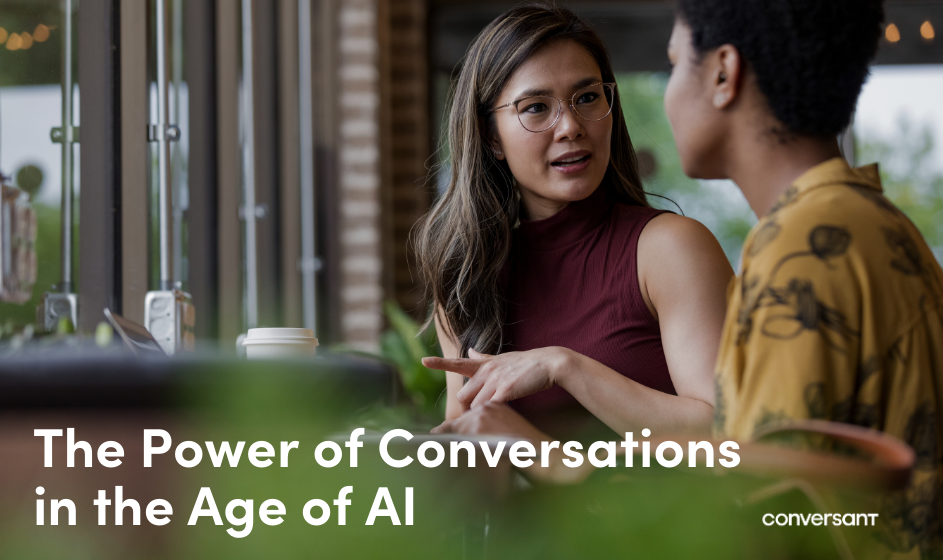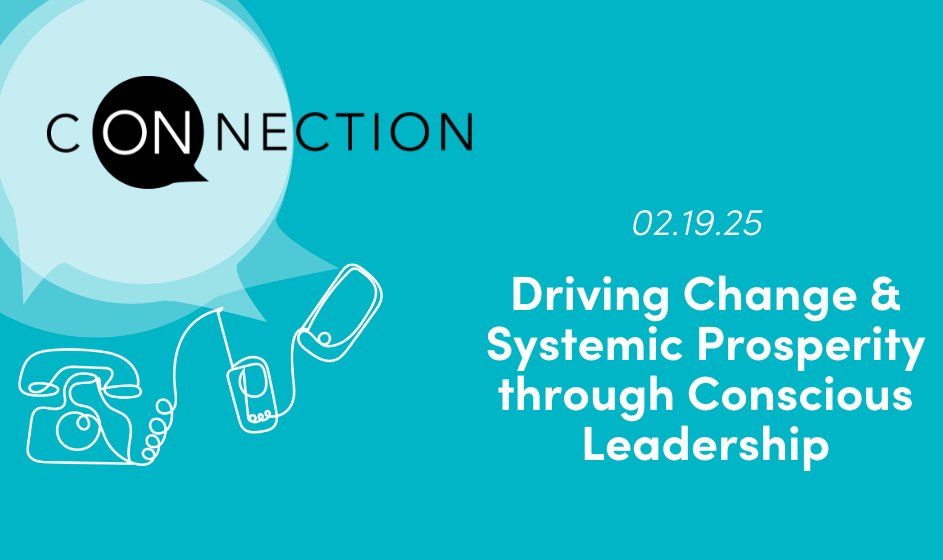
How do we address mental health & well-being at work? | The Connection Diaries
Over the past few months, we’ve been hearing more and more about the increasing concern for well-being and mental health in the time of COVID-19. Massive changes in our personal and work lives have all kinds of systems stressed, revealing their capacity to cope with that stress and bringing up new questions about how we take care of our businesses, our people and ourselves.
We’re hearing the same concerns from leaders all around the world:
- “Now that reality is setting in, my team is exhausted and overwhelmed. How do I help sustain the energy and health of my people?”
- “The Zoom happy hours were great in the beginning, but I’m noticing people becoming less engaged and pulling away now that the novelty has worn off. How do I keep everyone connected?”
- “As a leader, there’s so much pressure to be a reliable source of honesty and hope, and balancing that has been a real challenge. I have the responsibility to set the tone for the organization, but I’m struggling with overwhelm and fatigue myself. Sharing that vulnerability feels risky, like it could do damage to morale or to my own credibility, or both.”
- “We’re seeing a huge divergence in personal circumstances, from physical space to family responsibilities and social isolation, so everyone is coping differently. How can we provide support when individual needs seem to be so varied?”
- “Work is no longer a place we go, it’s what we do every day. When we can’t have that physical interaction in the office, how do we sustain our culture virtually?”
These challenges all seem to point to a topic many are considering with new significance: What is the relationship between personal health and organizational health? Are there ways we can take care of both things at the same time?
Evelyn Jonkman and Emma Rose Connolly joined Robin Anselmi to share what they’ve been noticing about the rising importance of well-being at work. They discuss how those challenges relate to the quality of connection and conversation in our organizations, hypothesizing that the principles for fostering workplace vitality are the same ones that impact our individual and collective health.
They also suggest that this time offers us a great opportunity to stay awake to the signals revealing how well our systems respond to these stressors. Armed with this information, we can build more resilient systems and processes moving forward that support personal and social health, as well as the performance of our businesses.
If you’re facing these challenges right now, we would love to hear from you. What questions are you wrestling with? Is there anything you’d love advice from other leaders on how to handle? What have your organizations been doing that’s working well? Comment below or connect with us on LinkedIn! Let’s unleash our collective brilliance.
Full Transcript
Robin: Hi everyone, welcome to this month’s edition of the Connection Diaries. Today I’m joined by my colleagues Evelyn Jonkman and Emma Rose Connolly. Hi Youtube!
Evelyn: G’day.
Emma Rose: Hello.
Robin: Ev, where are you joining us from today?
Evelyn: I’m in Amsterdam, so it’s quite dark, night.
Robin: And Emma Rose, you?
Emma Rose: I am in Boulder, Colorado.
Robin: Fantastic. So last month, Mickey and I talked about connected leadership and made the distinctions between community, contribution, and choice, and how all of them are essential for connected leaders. Over the past few months, we did some research with leaders across the globe around things that were on their minds and concerning them during the COVID-19 crisis. And one of the topics that came up early on for us in that research was leaders being worried about the well-being of their organizations, and as COVID-19 has continued throughout the year, we’ve seen an escalation in that concern. Emma Rose, what do you think Conversant has to say or, connected leadership has to say, about well-being and particularly mental well-being in an organization?
Emma Rose: Yeah sure, well I mean, we really play in the realm of connection and conversation at work, and there have been so many studies over the last decade-plus around mental well-being and emotional health on the individual level that have revealed that our connection to other people, our relationships, our environment really influences our personal well-being. Now, we’re not experts in that domain, and we’re not going to pretend to know everything about how to solve the mental health problems in the world, but we do know how to contribute to our sense of community, our sense of connectedness, and our sense of empathy and purpose at work, and that we know that that’s really important to individual well-being and organizational vitality.
Robin: Yeah, so we started really talking about this in terms of social well-being, right, how do you take care of the connections inside an organization to ensure the vitality of that organization. And Evelyn, you’ve been spending a lot of time really thinking about, what is this time revealing to us about leaders and their role in well-being, so what have you been noticing about that?
Evelyn: What we’re noticing is—well we know with COVID that what’s happening, it’s actually putting stress on all sorts of systems. So all sorts of things are showing up we’ve been talking about the acceleration of I.T., the acceleration of connection through virtual, but it’s also accelerating how people are feeling, how people are responding to stress. With much more stress, you’re seeing a whole lot more anxiety, depression, lack of clarity, not knowing what to do, so these are all sort of starting to show up a lot more, and so systems all over the place are feeling this stress. So when you’re looking at that, the—we can look it from two perspectives: from the individual and from the organization. If you’re looking at the individual, what they’re really looking for is actually to be able to speak up, to be able to say, “Hey I’m not doing very well, I’m looking for some help,” and for it to be acknowledged as they speak up, as something that’s actually situationally based. It’s not who you are, it’s actually what’s happening to you. So I want to be able to speak up, and the second thing I really would like to have is to be heard and heard with some form of empathy. I’m actually legitimizing what you’re saying, I’m hearing what you say, and a human response to it, not a quick, “Let’s brush you off to, you know, the—someone who can help you—a professional.” It’s like I can actually hear you. I understand that, I’m having some issues myself as well.
Interestingly enough, when you look at that sense of people being heard and people actually hearing properly, it starts to bring up that element of compassion, empathy, and what the studies are starting to show, when people feel empathetic and feel people feel compassion, they themselves actually feel more connected, and they actually start to build more resilience. And they actually start to also start to sort of become a bit more buoyant, and it actually can be an antidote to burnout. By being more connected, I’m more actually able to deal with my own problems. So if that’s the individual’s case, what have you been seeing? Have you been seeing anything in your workplace?
Robin: Well, what I really love about what you just said because we—one of the things that we are hearing over and over again is leaders who are worried about, like, “How do i take care of this organization when I myself am feeling that level of stress and burnout?” And what you just said is, you can actually take care of it through the community, right, so actually reaching out to others and showing empathy to them will help to alleviate some of the burnout for me as a leader. I think that’s a little counterintuitive, right. I think leaders might not naturally lean into that. I think one of the things that I’ve been seeing and really noticing is leaders bringing problems to a group to solve, so not feeling like they have to take it on to solve by themselves, but really coming forward and saying, “Here’s the challenge that we’re facing. How do we solve this together?” has also sort of helped with that well-being of the system because everybody’s part of it, then. It’s not mine to solve and I’m not putting it on you to solve. We’re actually in something together, so it elevates that sense of community and the sense of contribution. Emma Rose, anything that you would add to that?
Emma Rose: Yeah, I mean, I think that there’s been a tendency for people to withdraw; people are feeling really fatigued right now. They’re kind of sick of the situation that everybody was hoping would be over a lot more quickly. The normal ways that we—well the norm—I would say novel, the things we normalized about the ways we were connecting at the beginning of this aren’t working as effectively in terms of our quality of connection, so there’s a lot of questions from leaders about, “How do I actually create authentic, empathetic, connected relationships with the people in my organization? How do I lean on other people in my organization without compromising my credibility? How do other people feel engaged even at a time when we have no idea what’s going to happen two months from now?” So I think those are huge conversations that a lot of leaders are feeling the weight of right now, and that we know we need to keep exploring those together, but we do have a hunch that solving them as a community and as a collective is probably the answer that’s going to also contribute to us making this through this with more resilience, as Ev said.
Evelyn: I think it’s really important to also think that this—although this is a really awful situation for all of us and we are seeing the manifestations of the stress—it’s also an opportunity because what we really are seeing is we’re seeing the cracks in the system. And when we look at mental health from those sorts of lenses, we see that when people are being dealt with as an individual, they feel unsatiated and feel like we’re not—I’m not being seen and heard. But if we start to think about a system response and start to look at those cracks as an opportunity to think about, “How do I create thriving organizations? What are the stresses I put on the system?” And as a leadership group, or as an organization, start to think about, “How do I use these as a way of creating even more thriving organizations?” People are feeling like they’re not only just being heard, but the system is changing because of the fact they’re speaking up. And when you’re getting that to start to happen, people start to want to contribute more to, “How do I shift from what I call mental health issues into really strong, thriving, vibrant organizations where there’s heaps of vitality?” And these are the same levers as what we’re seeing, that we’ve been using in the past, so there’s real opportunities here as well.
Robin: I think creating thriving organizations, particularly inside complex systems, requires really smart questions, so I love these questions that we’re all starting to explore. We’d love to hear from all of you, what are the questions that you’re starting to explore as you think about well-being and vitality in your organizations? What are the ones you’re struggling with? So, we’d love to hear about those. Also Ev and Emma Rose are going to be posting a series of blogs on this topic, so check out those as they’re coming in the months to come. Thanks everybody, we’ll see you next month.



